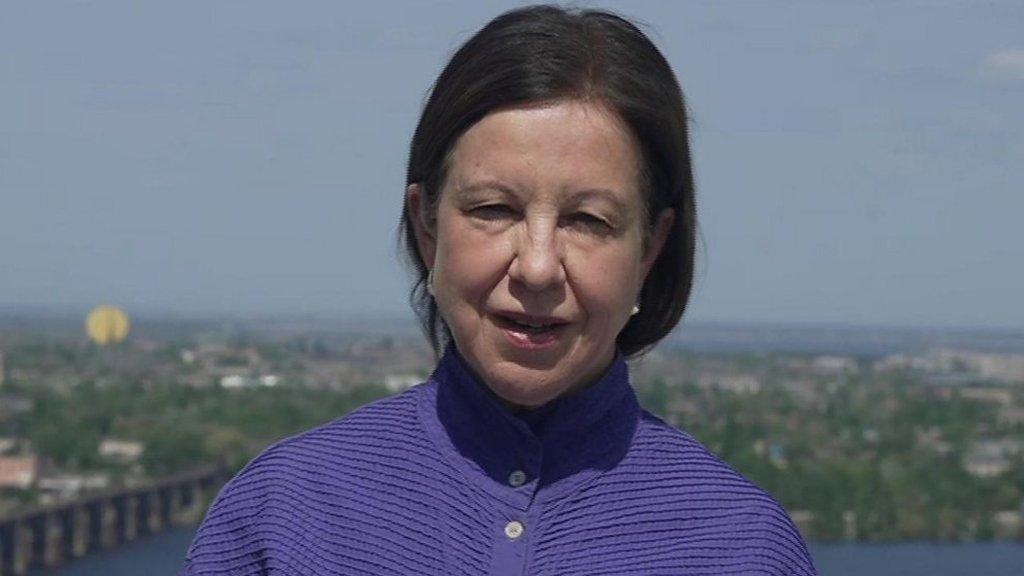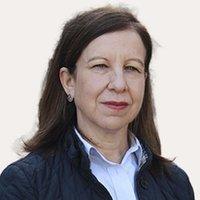Shireen Abu Aqla: face and voice of war and peace
- Published
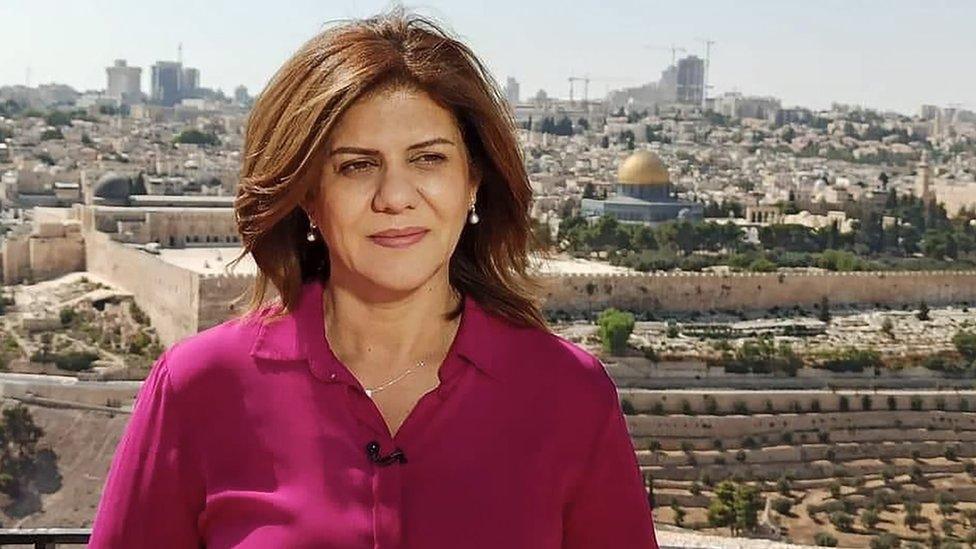
Shireen Abu Aqla was known to millions for her coverage of the Israeli-Palestinian conflict
Shireen Abu Aqla was a household name across the Arab world - literally.
Across the region and beyond, her calm commanding presence filled living rooms, courtyards, and camps as viewers turned to the new Al Jazeera network transforming 24-hour Arabic language television.
Joining in 1997, a year after its launch, she made her own history, too.
For a new generation of young Arab women who came of age then - and are now a driving force in journalism - she was the first female correspondent they'd seen on their television screens.
I saw the news first on my colleague Shaimaa Khalil's Twitter feed.
"Oh what terrible news!! I and millions have followed Shireen's reporting for years!"

"A lot of women grew up holding a hairbrush in front of a mirror and pretending to be Shireen," her colleague and friend Dalia Hatuqa reflected in her tribute.
Abu Aqla made her mark among Israelis, too. "Israeli soldiers would shout from a bullhorn and also mimic her TV sign off" - another of her Al Jazeera colleagues, Linah Al Saafin, shared on social media.
Searing grief
In the Arab world, she was the face and voice of a daily digest of war and peace in the wake of the 1993 Oslo Accords.
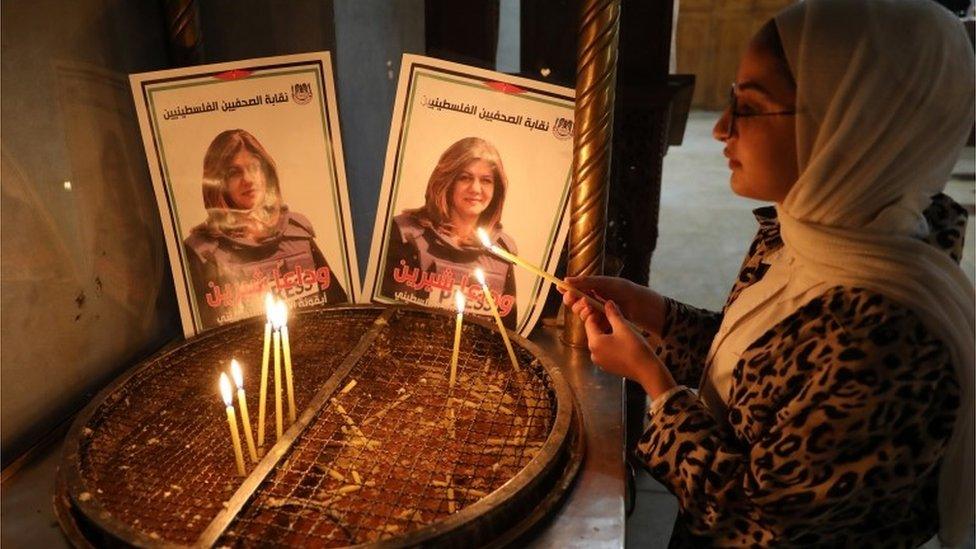
Living in Jerusalem then, I remember her in the scrums of journalists covering a conflict which rarely left the headlines. She was part of our tribe but, her authority and quiet confidence set her apart - her ready smile and infectious laugh drew many to her.
Her reputation is said to have been sealed 20 years ago with her reports on Israel's invasion of a refugee camp in Jenin in the occupied West Bank.
Now, in that same northern town, she became the biggest of news herself as she reported on an Israeli raid.
A photograph captured her colleagues' searing grief and disbelief as they surrounded her hospital gurney. A wave of shock and sadness shot around the world.
Blue body armour emblazoned with "PRESS" in bold white letters, placed on her wooden coffin, was a powerful and painful reminder of the huge and growing price paid by journalists covering the Israeli-Palestinian conflict, and many other grievous wars.
Watch: Lyse Doucet says Shireen Abu Aqla was an "inspiration" to journalists
"Always calm and, cool and collected even when faced with the most horrific circumstances and bloodiest scenes," wrote leading Arab journalist and writer Marwan Bishara who said he was "not ready to speak about Shireen in the past tense".
When a story mattered she was there. Now she is not, and, for so many, a big part of every story she faithfully covered will be missing.
New titles are cascading across social media - trailblazer, symbol, martyr.
There's already a billboard with her photograph in the West Bank city of Ramallah.
But she has only one title which she earned throughout her life - journalist.
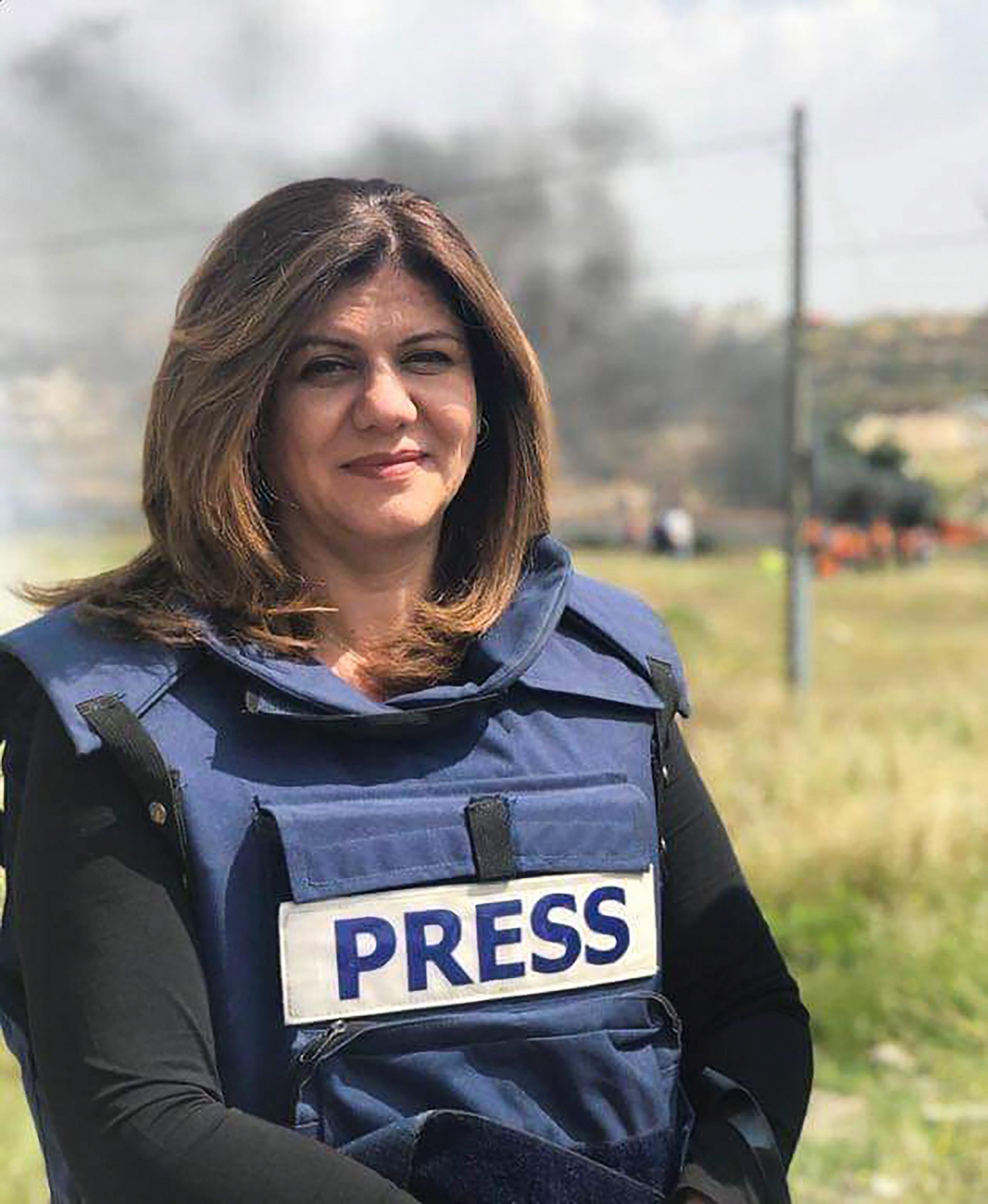



- Published12 May 2022
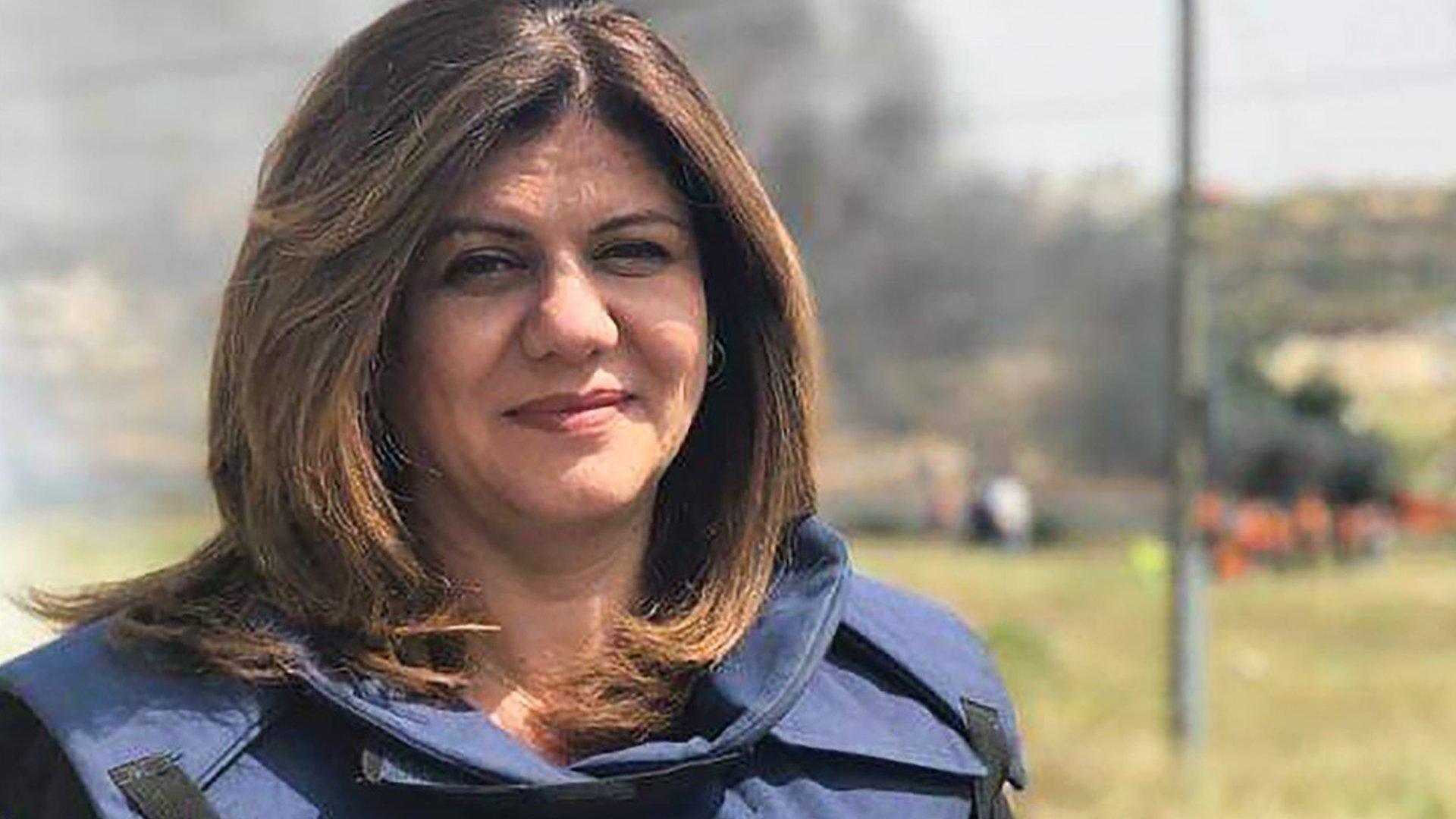
- Published11 May 2022
